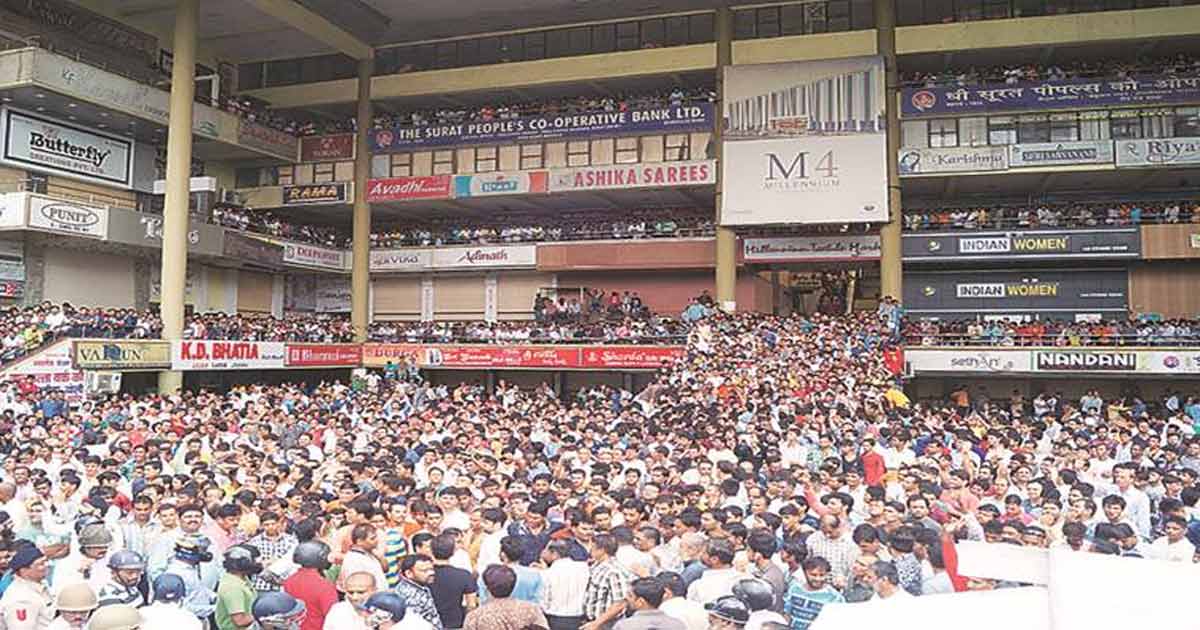The Surat textiles industry is protesting for newly introduced Goods and Services Tax Regime and demanding for GST exemption on fabric and textiles. Union Finance Minister Arun Jaitley gave them assurance that the GST Council would focus on their demand in the meeting of 5th August 2017. But, in the GST Council Meeting held on 5th August, Jaitley denied for the GST exemption on fabrics and textiles by saying that it would break the input tax credit chain.
In India, 60 per cent of apparels and textiles imports from 10 top trading partner countries which include China, Bangladesh, United States, Australia and so on. As per the data from the Ministry of Textiles, India had imported $2.62 billion apparels and textiles from China in the fiscal year of 2014-15.
Sanjay Sudrania said that the anti-dumping indirect tax must be levied on Chinese imports. Earlier in 2016, the Federation of Surat Textile Traders Association (FOSTTA) had communicated to the central textile minister seeking an anti-dumping tax imposed while importing fabrics from China. During that period about 50% of Surat-based textile traders had shut down their shops for one month and complained about cheap Chine fabrics downsizing the demand. After two months, textiles commissioner Kavita Gupta had disapproved the claim that Surat-based power-looms businesses were influenced due to imported Chinese fabric.
In the period of April 2014, the anti-dumping tax was levied on fabric and textiles imported from countries like European Union, South Korea, China, and Thailand. In the period of July 2016, the anti-dumping tariff was revised and the tax was levied on China, Iran, Taiwan, Indonesia, and Malaysia.
Read Also: Goods and Services Tax Impact on Shopping Malls
Surat textiles industry includes dyeing, power looms, and printing mills. Nearly 1 million workers are employed in this industry either directly or indirectly and via formal jobs or informal jobs. Some of these workers left the city due to the 18-day strike as there was no work to do.
Anil Jain, A trader in the New Textile Market said, “At the completion of every stage the saree comes back to us. In all this back and forth, the government not only wants us to pay for the service but also wants us to make sure everyone files their returns. By adding that, Does the government expect all these individual workers to file returns online?”
Businesses whose annual turnover is below Rs 20 lakh are exempted from GST and will not be liable to file several returns under the new indirect regime. The website of Ministry of Textile had processed the issue of textiles industry especially for input credit and secured payment inside 180 days. However, the traders of textiles industry declared that they are not aware and confused.
Huzefa Nasikwala, Founder of Nasikwala Law Office in Mumbai, said, “If I have a GST registration, I will not purchase from a guy who doesn’t have a GST.” By adding that, “There are these input credits that I have to take, so I will insist for a GST number [down the chain].”
In the views of Nasikwala, “the textiles industry across Surat is doing the daily business transaction in cash only. Entire value chain starting from weaving to small traders and migrant labour is influenced by the new regime. Under the previous regime, no taxes were being paid by the textile industry and by the value chain members. Huzefa said, Now if you impose a tax regime the entire chain gets disturbed. This is the core issue they are facing. Some of the small players will be wiped off.”
Recommended: Top 5 GST Billing Software for Small Business Owners in India
GST Council Meeting was held on 5th August in which the tax rates on job work has been placed in the 5 percent slab rate under the GST (Goods and Services Tax Regime). Textile Association said that the issues of textiles industry were not addressed by the GST Council.
